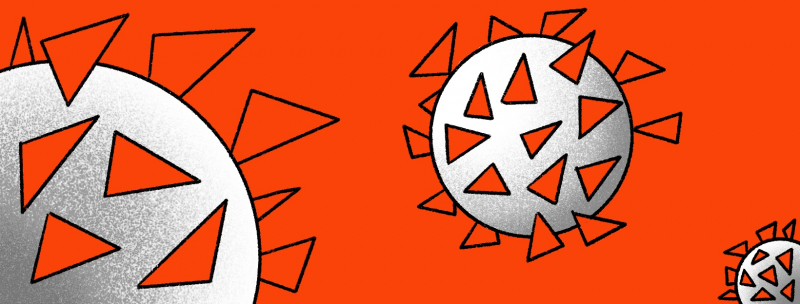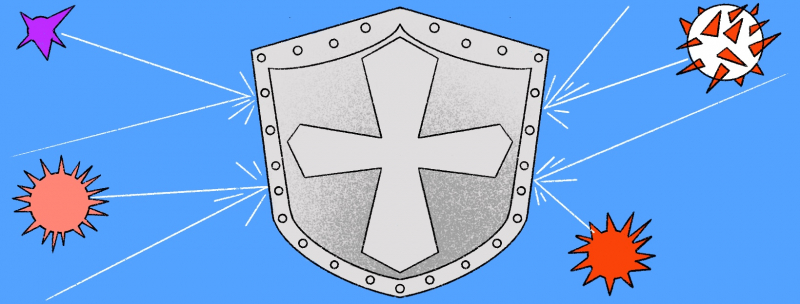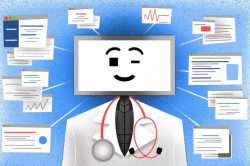Googling your symptoms to find out you’re terminally ill. Does it sound like you? But when it comes to health, it’s no place for jokes. And although you should always seek professional help when you don’t feel well, it doesn’t mean that you should forget about self-development – especially now and especially on health matters. With the help of popsci books on medicine, you can learn how your body works and how doctors think. And you don’t even need to google anything – here are nine popular books for starters.
Evidence-based medicine
-
0.05. Evidence-Based Medicine. From Magic to the Search of Immortality by Peter Talantov

Out of the three, this one is the most vivid representative of popular science on evidence-based medicine. The term “evidence-based medicine” seems to speak for itself: everything must be scientifically proven and safe. But how can we know if a new drug will help people and won’t cause any harm? And why do some experts argue that most claimed research findings are false? In this book, Peter Talantov, both a doctor and an entrepreneur, explains modern medicine, pharmacology, and medical marketing. Today’s medicine isn’t actually perfect, and Hippocrates also made mistakes.
-
Evidence-Based Medicine by Sharon E. Straus and others

Designed for those wishing to get to the core of the problem, this book will be perfect for science communicators in medicine, for instance. Sharon E. Straus believes that all medical specialists must devote their lives to learning and teaching others. And, indeed, Evidence-Based Medicine is a true treasure trove of knowledge, which doctors can use to master the evidence-based techniques and teachers – to explore the features of this discipline.
-
How to Read a Paper: The Basics of Evidence-Based Medicine by Trisha Greenhalgh

This book is a guide for doctors rather than patients. It not only provides a clear picture of evidence-based medicine, its methods and place in education and practice but also teaches medical specialists how to formulate well-built clinical questions and devise efficient solutions. Trisha Greenhalgh also describes the assessment process of clinical trials, diagnostic and screening tests, systematic reviews, medical guidelines, and economic analysis – all in an interesting and easy-to-understand manner.
Pandemic, coronavirus, and vaccination
-
Pandemic: Tracking Contagions, From Cholera To Ebola And Beyond by Sonia Shah

Now, when you hear the word “pandemic”, the first thing that comes to mind is a coronavirus. But, oddly enough, this book isn’t about the novel virus. In fact, Sonia Shah, a renowned science journalist, wrote it back in 2017. As it turns out, epidemiologists have predicted the possible onset of a major pandemic years before the coronavirus hit the world. The author uses the example of cholera to describe all stages of a pandemic – from a bacteria to a global challenge – and takes into account all aspects of the matter: scientific, political, and human.
-
The Virus That Broke the Planet by Irina Yakutenko

And this one is, indeed, about the coronavirus. Although it feels like people have already gone through a variety of emotional experiences, from panic to acceptance, since the outbreak of the pandemic, many still can’t escape the feeling of uncertainty. How can the same virus that kills so many go entirely unnoticed in others? Is the vaccine safe? Will people ever find a cure? And when will it happen? There are so many questions, and Irina Yakutenko, a molecular biologist and science popularizer, has all the answers.
-
Deadly Choices: How the Anti-Vaccine Movement Threatens Us All by Paul Offit

Dr. Paul Offit, one of the most notable vaccine experts in the US, wrote a shocking story about the anti-vaccine America. In Deadly Choices, he powerfully describes when people started to fear vaccines and why, what can be the effects of the mass vaccine refusal, and whether the side effects are so terrible. The author refutes the arguments of the anti-vaccine movement and proves: you can only trust science.
Immunity, reason, and soul
-
Immunity: The Science of Staying Well by Jenna Macciochi

What do we know about immunity? Everyone wants a strong immune system yet everyone blames it for all existing health problems, too. In her book, Dr. Jenna Macciochi explains the structure of the immune system: how it works, and what people can do to strengthen it. This book is the quintessence of her 20 years of work experience in the field of immune system and lifestyle that she is happy to share with others.
-
Brain and Soul. How Nervous Activity Shapes Our Inner World by Chris Frith

Illusions, imagination, memory, feelings… you probably think that it's simply impossible to describe such abstract concepts in a rigorous and scientific way. But Chris Frith, the famous British neurophysiologist and neurobiologist, pulled this task off. Plus, he did it in a way that everyone can understand. What could be easier than picking up a spoon or recognizing a friend you bumped into? But in reality, these are the result of a complex work of specific brain areas. And not only does a rich inner world exist but it’s also scientifically proven: it can also be explained by the processes occurring in the brain.
-
Clap with one Hand. How Inanimate Nature Gave Birth to the Human Mind by Nikolai Kukushkin

Have you ever tried thinking about two things at the exact same time? Chances are you didn’t succeed. In his book, evolutionary neuroscientist Nikolai Kukushkin explains why it’s not possible and what can be done to make it happen. Going all the way from non-living matter to human reason, readers learn that consciousness is a hallucination, and figure out what happens if you give LSD to an elephant, and what lungs have to do with lichens.
Written by Irina Vorontsova




